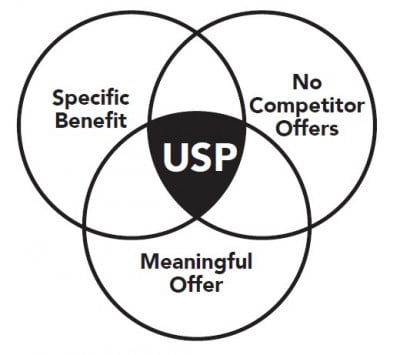
If Every Company Was Equal…
… We’d all get our fair share.
Demand would be stable.
Customers would choose based on … well, what, exactly?
Probably proximity.
As they say, location, location, location.
People who live near a home services contractor are more likely to be familiar with his name, and to call that familiar name when they need services.
Other than location, the only other source of new customer acquisition in the Fair Share world is referral and/or word of mouth. Even in the Fair Share world, some contractors are simply better at delivering services. Some are more personable. Some are more thorough. These differences will probably matter to homeowners who value skill, or personality, or thoroughness.
There Is No Advertising in Fair Share World
To get the word out, contractors would have to rely on one-to-one referral, or the more general word of mouth. Each of these is a less than optimal method.
Referral requires someone who has a positive experience with a particular contractor to learn of a friend, colleague, neighbor, or family member who needs the same service. Then they can say, “Oh, I know a guy!” The odds are slim that this particular combination of circumstances will occur with regularity.
Word of mouth? That’s the accumulation of positive comments over time. Years. Decades to build to critical mass.
Why so glacially slow? Because people only remark about the “remarkable”. When they get what they expected they won’t mention it. Why would they? It’s only when a customer’s expectations are violated (impressively better or disappointingly bad) that the interaction becomes worthy of retelling.
Under the vast majority of circumstances, people won’t talk about us. We’re just not that important to their lives.
Spreading the Word
As long as merchants have sold goods, they have attempted to tell more people about those goods. From 4,000-year-old rock paintings in India, to 3,000 year old Egyptian stelae, to town criers and newspaper ads in the 1,700s, the message has pretty much been, “Need this? Come see us.”
When you’re the only fabric importer, or book merchant, or dealer in tea, we can imagine telling folks what you sell is probably effective.
But now? We have competitors. These competitors start painting messages on the sides of barns, or in the newspaper, or even hire men to wear “sandwich boards” telling other folks what they have for sale, and how to get it. Way too many seem to have what we have.
We’re back to Fair Share world, aren’t we?
Some of those new competitors are more convenient to some customers. We notice fewer customers pass our “open” sign and drop in these days.
Screw this Fair Share business. It’s time to get our unfair share. To reach out and invite customers to do business with us.
Where Do We Start?
Well, since we don’t know exactly what people will be looking for today, we’ll probably fill our ads with lists of everything we offer.
Ads are expensive. It only makes sense to spread them throughout the month to make them last.
And, since we’re not sure what to say, let’s pay attention to what all of the competitors say in their ads. We should probably say pretty much the same things they do. These three assumptions compromise three of the most common copywriting mistakes: a) include everything in our ad, b) make the ads last all month, and c) say the same things our competitors say.
Welcome back to Fair Share World. In addition to all of our services being interchangeable, all of the ads are now interchangeable too. And since they’re all alike, it appears we all offer the exact same services.
I hope you at least found a great location.
Standing Out
Wait a minute…
Didn’t we say that individual homeowners are drawn to the contractors who offer greater skill, or thoroughness, or are just friendlier?
That makes sense.
People who value those characteristics will call the shop known for those specific differences. As Robert Stephens, founder of Geek Squad, said, “Advertising is the tax you pay for being unremarkable.”
What makes us worthy of being remarked about? What advantage do we offer? Will a customer think our advantage is valuable to her? Will she choose our difference from among the commodity-like sameness offered by our competitors? Will she pay more for our advantage? How can we use advertising to promote our advantage?
 Rosser Reeves in his 1961 book Reality in Advertising first proposed the Unique Selling Proposition (USP). Reeves claimed that each offering must:
Rosser Reeves in his 1961 book Reality in Advertising first proposed the Unique Selling Proposition (USP). Reeves claimed that each offering must:
- Offer something people actually want.
- Make a proposition. A promise. “Buy our product, get this specific benefit.”
- Be unique. Make your proposition one that your competitors cannot, or will not copy.
This is a great formula. Be unique, and do it in a way no one will copy.
When he wrote the book, Reeves was the Chairman of the Board of Directors of Ted Bates Advertising.
His clients included Colgate Tooth Paste, Palmolive Shaving Cream, Hostess Cupcakes, Wonder Bread, and M&Ms (“Melts in your mouth. Not in your hand”). His book was great advice for national manufacturers of packaged goods.
Be different, but do it in a way that matters, and in a way competitors can’t copy.
Folgers is mountain grown. Visine gets the red out. Chesterfield cigarettes are a silly millimeter longer. Your safety is Volvo’s priority.
Great idea for manufacturers of packaged goods. Great advice for national advertisers.
But for local businesses?
The USP DOES NOT WORK!
It simply can’t.
Local retailers sell identical goods. They offer the same things as every other local retailer.
- All convenience stores sell Coca Cola, Marlboro, and Budweiser.
- All grocers sell USDA prime beef, chicken, milk, and eggs.
- All gas stations sell 87 octane, 90 octane, and 92 octane gas. (And does anyone really believe there’s a difference between Chevron’s gasoline and Amoco’s or Shell’s?)
No wonder customers price shop. Everyone offers the same goods. Consumers would be foolish to pay more than they have to for interchangeable goods.
Services are interchangeable, too. Plumbing? Heating and Air? Roofing? In the minds of homeowners, aren’t they all the same?
Every pest control company sprays for bugs. Every landscaper mows grass. Every floor covering contractor installs wall-to-wall carpet. All HVAC contractors offer the same repairs to furnaces. Or heat pumps. Or air conditioning units
We can’t offer any services that our competitors won’t also offer.
We could advertise that our techs wear paper booties inside the home. Within 90 days so will every other contractor’s technicians.
We might claim to stock 97% of the parts we need to complete the job on the first service call. A miniscule change in their inventory and our competitors can do this, too.
If we offer guaranteed on-time service, or after hours at no additional charge, so will every competitor who starts losing market share because of our on-time guarantees or no charge after hours service.
The pursuit of uniqueness is a huge source of frustration.
Of wasted money.
Of non-persuasive advertising.
Homeowners genuinely don’t know how to judge the quality of our services. They don’t have any idea how we compare to our competitors.
Despite The USP, Differentiation Is Still Critical
And that’s the conundrum. If potential customers don’t see us as different, and different in a way that benefits them, they won’t go out of their way to buy from us. And yet, since we all perform the same services…
We’re all back to Fair Share World.
It’s inevitable that a competitor, at least one competitor, is going to cut price. We’ve already established that’s not going to work.
So, what can we do that’s different?
Clue: It’s not what we do, but rather who we are.
In the next chapter you’re going to learn how to isolate a real marketable difference. You’ll create individuality that will set your contracting company apart from every competitor.
We will start by defining your company’s values.
You’ll create your company culture, and choose your company’s proxy spokesperson.
You’ll learn to protect your brand in your local marketplace.
And finally, you’ll use your resulting reputation to attract the very technicians you need to fill the empty positions left by retiring technicians who are leaving the industry. There are great techs right now who want to work for an excellent company like yours.
Strap yourself in, Mr. or Ms. Owner. In Part 7 of this series we’re going to define what you believe, and what you believe in.
__________
The content for this series of posts was taken from Chuck McKay’s The Personality Prescription for Contractors, available on Amazon.
Links to previous posts in this series:
Part 3 – You’re Choosing Cheap Ones
Part 4 – Other Homeowners’ Motivations
- How Many Pancake Restaurants? - October 7, 2024
- Bringing Newcomers into the Labor Pool - January 4, 2023
- Hire Veterans Reentering the Local Job Market - December 28, 2022
